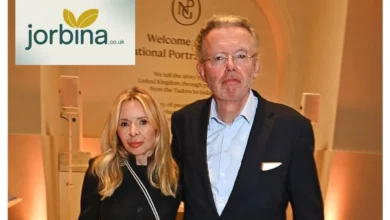Inside Lucy Powell’s Strategy for Winning the Public Back

Have you ever questioned how a politician regains credibility after it has been damaged? Why would anyone look at that person and say, “Yes, that’s someone I can believe in again”? Changing allegiances, shifting stories, and never-ending arguments are all part of politics. But in the end, it all boils down to people and their capacity for connection. At a time when people’s faith in politics feels overextended, Lucy Powell, the Labour MP for Manchester Central, has been negotiating precisely that difficulty: how to win back the public’s trust.
This is her narrative, her method, and the tactic that could potentially help her and Labour resonate with the public once more.
From Manchester Roots to the National Stage
Lucy Powell isn’t a newcomer to politics. Born and raised in Manchester, she has always been tied to the city’s working-class identity. That local connection is something she wears proudly. For her, representing Manchester Central isn’t just about ticking boxes in Parliament. It’s about carrying the voices of people who live through real struggles every single day.
Her journey into politics wasn’t flashy. She studied politics and later worked in communications before becoming heavily involved in the Labour Party. Over the years, she worked her way up, gaining a reputation as someone who isn’t afraid to take on tough challenges.
That grounding in Manchester, combined with her determination to speak plainly, makes her stand out in a political landscape that can often feel detached from everyday life.
Why Trust Became the Biggest Hurdle
The reality is that people no longer have blind faith in politicians. A lot of people are disappointed. They have witnessed far too many broken promises and heard many lofty ones. Powell does not attempt to avoid the fact that she is aware of this. Instead, she confronts it directly.
She acknowledges that her party, like many others, has become disconnected from some of its constituents. Regaining trust requires a fresh start. Policies are only one aspect of it; tone, sincerity, and genuineness are also important. Being open, even when the answers are difficult, is the cornerstone of Powell’s approach.
A Fresh Communication Style
One of Powell’s most notable tactics is changing how she communicates. Gone are the days of long-winded speeches filled with political jargon. She’s shifting toward everyday language that feels accessible. She focuses on explaining policies in ways that make sense for people who don’t live and breathe politics.
Think of it this way: if voters can’t explain what you stand for in a simple sentence, you’ve lost them. Powell seems to understand that better than most. She keeps her words direct, her tone conversational, and her style approachable. That’s part of how she aims to win people back.
Standing Firm on Local Issues
At the core of Powell’s work is her connection to Manchester. She knows that national politics is important, but local issues often shape how people feel about their leaders. She champions affordable housing, investment in public services, and opportunities for young people in her city.
By prioritizing these issues, she reinforces the idea that she’s not just a voice in Westminster. She’s still Manchester’s advocate. That balance between local loyalty and national ambition is critical for her strategy. When people see her delivering results at home, they’re more likely to trust her vision for the wider country.
The Balancing Act in Labour’s Leadership
Politics is never simple, especially within Labour. The party has been through waves of internal debate, shifting leadership, and redefined directions. Powell’s role has often placed her in the middle of those conversations.
Her strategy here is clear: avoid the trap of endless infighting. Instead, she tries to focus attention on issues that matter to voters. That doesn’t mean she shies away from tough debates within the party, but she frames them in a way that feels outward-looking rather than insular. For the public, this matters. People want to know that their politicians are solving problems, not just arguing amongst themselves.
Clear Stances on Key National Policies
Winning the public back also means being decisive on big national questions. Powell has been outspoken on education, housing, and media policy. Rather than offering vague answers, she pushes for specifics. For example, she argues for reforming education to make it fairer and more accessible, with a strong emphasis on skills that actually prepare people for today’s job market.
On housing, she’s direct about the need for more affordable options. For young people who feel locked out of home ownership, this is a message that resonates. By connecting policies to lived experiences, Powell positions herself as someone who gets it.
Using Media to Build Trust
In an age where social media dominates, Powell’s approach to communication matters more than ever. She doesn’t simply use these platforms to broadcast slogans. She engages, responds, and makes space for conversation.
This strategy works because it breaks down barriers. People want to feel like they can actually reach their representatives, not just hear from them once every election cycle. By making herself visible and approachable, Powell builds trust in small, consistent ways.
Lucy Powell’s official website—a solid resource for her latest updates, local projects, and policy priorities. You’ll find her “About” section, news, campaign efforts, and direct contact details—all from her own platform. lucypowell.org.uk
Facing Criticism Without Backing Down
Every politician faces criticism, and Powell is no exception. What sets her apart is how she handles it. Instead of ignoring tough questions, she addresses them openly. Even when she doesn’t have all the answers, she acknowledges the concerns.
This may seem simple, but it’s powerful. People can accept that no one has a perfect solution to every issue. What they can’t accept is avoidance. Powell’s willingness to face criticism without backing down strengthens her credibility.
Learning From Past Missteps
Powell isn’t shy about reflecting on the party’s past mistakes. She knows Labour has sometimes lost its connection with working-class voters, and she’s vocal about the need to repair that relationship.
By addressing those missteps directly, she shows humility and self-awareness. These qualities aren’t often associated with politicians, which makes them even more effective when people see them in action.
Building Coalitions Across Divides
Another key element of Powell’s strategy is her ability to work across divides. Whether it’s within her own party or across the aisle, she understands the value of building coalitions.
This doesn’t mean compromising her principles. Instead, it shows that she’s pragmatic. She looks for areas of common ground while holding firm on her core beliefs. For voters tired of constant gridlock, this approach feels refreshing.
Why Timing Matters
Politics isn’t only about strategy; it’s about timing. Powell’s rise comes at a moment when many voters are reevaluating their loyalties. Disillusionment with politics in general is high, but so is the appetite for change.
She seems to recognize this opening. By presenting herself as a voice of clarity and pragmatism, she positions Labour as not just the opposition but as a credible alternative ready to govern.
Connecting With Younger Generations
Reaching younger voters is one of the most difficult tasks for any party. Powell is aware of this and bases her messages on topics that directly impact them. She discusses the realities that young people encounter, such as the cost of housing and employment prospects.
Her friendly demeanor also aids in bridging the divide. Though they react better to authenticity, younger generations have a tendency to mistrust traditional politics. Powell’s readiness to speak simply and without overly stylized soundbites is advantageous in this situation.
The Road Ahead
So where does Lucy Powell go from here? Her strategy for winning the public back is built on three pillars: trust, clarity, and connection. She’s betting that by sticking to plain language, prioritizing local and national issues that hit home, and engaging openly, she can help rebuild the bridge between Labour and the people.
It won’t be easy. Politics rarely is. But her determination, grounded in her Manchester roots and sharpened by years of experience, gives her a strong foundation.
Bottom Line
Lucy Powell isn’t just another MP trying to climb the political ladder. She’s someone who understands the need to reconnect with people who feel left out of the conversation. Her strategy isn’t flashy or filled with empty promises. It’s about rebuilding trust step by step, conversation by conversation, and policy by policy.
And maybe that’s exactly what the public has been waiting for.
Quick FAQs
What has Lucy Powell done?
Former Leader of the House, Labour MP for Manchester Central since 2012, and supporter of housing, safety, and Manchester revitalization.
Who is the MP for Newton Heath?
Lucy Powell, a member of Manchester Central, is the local representative.
Who is Joe Powell MP?
Former leader of the Open Government Partnership, Labour MP for Kensington and Bayswater since 2024.
Is Nusrat Ghani still an MP?
Yes, since 2024, a Conservative MP representing Sussex Weald has served as deputy speaker.
Which MP was in the army?
James Heappey (Conservative, former major) and Dan Jarvis (Labour, former paratrooper).



